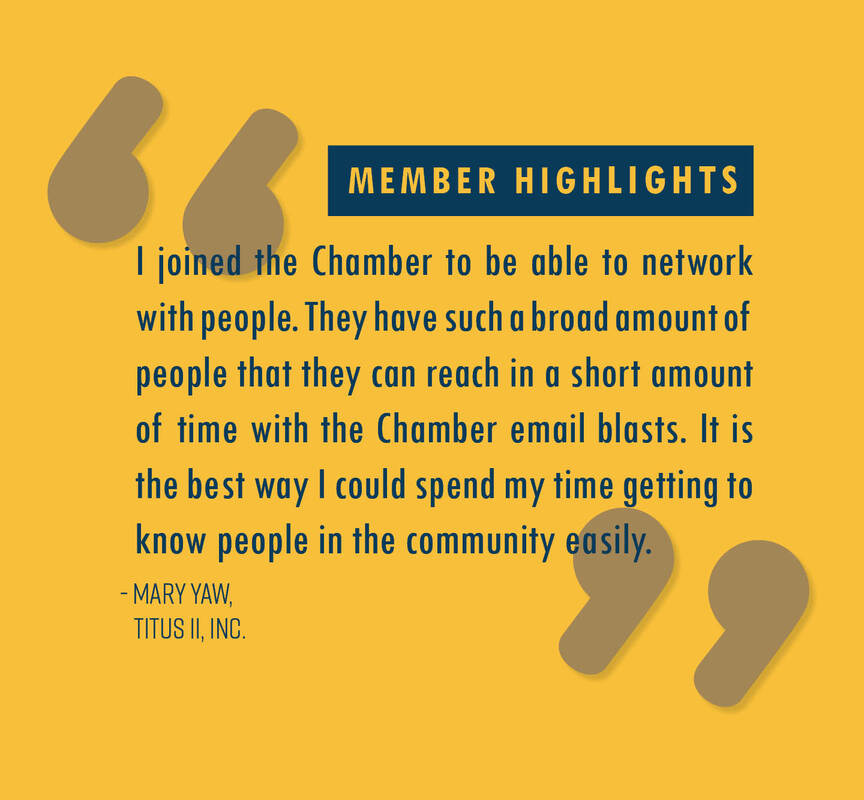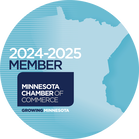|
By Doug Loon, President, Minnesota Chamber of Commerce Local chambers represent economic vitality in their communities. The Minnesota Chamber Federation unites and amplifies the voice of local chambers by advocating for policies to advance business in every corner of the state. Federation partners represent more than 43 local chambers representing 75 communities and more than 21,000 businesses across Minnesota.
They have worked together to promote pro-growth policies to the Legislature for more than a decade, helping ensure that state lawmakers understand the needs and interests of Minnesota’s diverse and successful local business community. Each year, Federation members work together to develop a set of policy priorities that matter most to their members, and the business community as a whole. The obvious priority heading into this Legislative Session is to support employers and their employees throughout the COVID-19 pandemic. The impact of COVID-19 on the statewide economy and many sectors of the business community will have lasting impact and the legislature must first “do no harm” and instead pass measures that spur recovery and economic growth. Businesses cannot sustain additional tax and fee increases, mandates, regulatory burdens and other measures that will further impede business recovery. “Business recovery from the pandemic is crucial for statewide economic success. Hospitality businesses have taken the brunt of the economic pain from government closures and restrictions, and all businesses are dealing with the challenges that Covid-19 brings to the workplace,” said Brad Meier, President and CEO of the Owatonna Area Chamber of Commerce. “Putting the Minnesota Chamber Federation focus on economic recovery makes sense. The decisions being made at the state government level will be key in how our economy recovers from this pandemic,” he added. The Federation supports:
Recovering from the COVID-19 pandemic is top-of-mind in Burnsville, too. According to Jennifer Harmening, President of the Burnsville Chamber of Commerce, “The top 2021 priority for the Burnsville Chamber will be addressing the impacts of COVID-19 closures on our local businesses. We appreciate that the Federation priorities are addressing several aspects of the recovery.” Although support for businesses throughout the remainder of the pandemic is still needed from lawmakers, it’s not the only important aspect of economic recovery. The Federation also supports maintaining benefit flexibility for employers, ensuring high quality, affordable health care and reliable, cost-effective energy and environmental sustainability. At the Minnesota Chamber, we appreciate the Federation’s efforts to advocate on behalf of policies that can move Minnesota toward long-term prosperity. No one understands local economies better than local chambers. We look forward to standing together on behalf of all businesses in the state this legislative session. By Tara Bitzan, Executive Director, Alexandria Lakes Area Chamber of Commerce Looking for a way to volunteer that offers you a professional growth opportunity? Consider serving on a board of directors for a nonprofit organization!
Board members are responsible for “governing” an organization, not “managing” it. Management and the daily tasks of the organization are typically handled by a paid executive director and other staff members, sometimes with help from volunteers. Governance is high level – think visioning, strategy and accountability – whereas management is the day-to-day operations. The board of directors, as a governing body, should focus on the organization’s mission, strategy and goals. Staff members are responsible for the implementation of those. Most organizations have set terms for board members, which typically fall between two and five years. A common meeting frequency is once a month for one to two hours, however, this varies greatly from organization to organization. There are no IRS guidelines to determine who is certified to be on a board, but often organizations have criteria they use when filling open positions. This varies widely from organization to organization, but it is best practice to find individuals within the community who have the passion and experience that aligns with the nonprofit’s mission. The Alexandria Chamber, for instance, is strategic in ensuring that the many different industry sectors in the community are represented on the board, such as manufacturing, health care, education, retail, banking, hospitality, etc. Some organizations may be strategic in seeking someone with strong financial, legal or human resources knowledge to advise and direct the organization in those areas. Here are some things to think about when considering board service:
Board service is not something one should dive into without some research and contemplation. You are not doing the organization any favors if you accept a position but don’t follow through with meeting attendance or other expectations. While board service is voluntary to the board member, it is extremely vital to the wellbeing of the organization and is something to be taken seriously. It is also important that you educate yourself on the organization and its mission, services and programming before making the commitment. It’s easy to say “yes” to a mission statement, but later realize you don’t agree with some of the operations or programming. Looking out for an organization’s best interest would be challenging if you are not in alignment with what they are trying to do or how they are doing it. It is also important to discuss the opportunity with your employer prior to making the commitment to ensure you have his/her support and to ensure there are no conflicts of interest. Last piece of advice – don’t wait to be asked! If you have identified an organization that you deem a good fit, let them know you are interested in serving. Most organizations keep track of interested persons and when a position opens up, they are the first to be contacted. If you don’t voice your interest, you may never be asked. There are many rewards to serving on a board. The lessons learned in visioning, strategic planning, high level thinking, etc. can be invaluable to your own company. The service may also open up some other leadership opportunities for you down the road! Brian Klimek is the manager at Hilltop Lumber & Rental Center which is a family-owned business that started in Glenwood in 1988. Since that time, Hilltop Lumber has expanded to include over 60 employees in five locations: Alexandria, Glenwood, Parkers Prairie, Brandon and Ottertail. All locations offer a full range of building supplies and home improvement products. The Alexandria, Parkers Prairie and Ottertail stores also include "Do It Best Hardware" stores.
|
Archives
June 2024
Categories
|


 RSS Feed
RSS Feed




